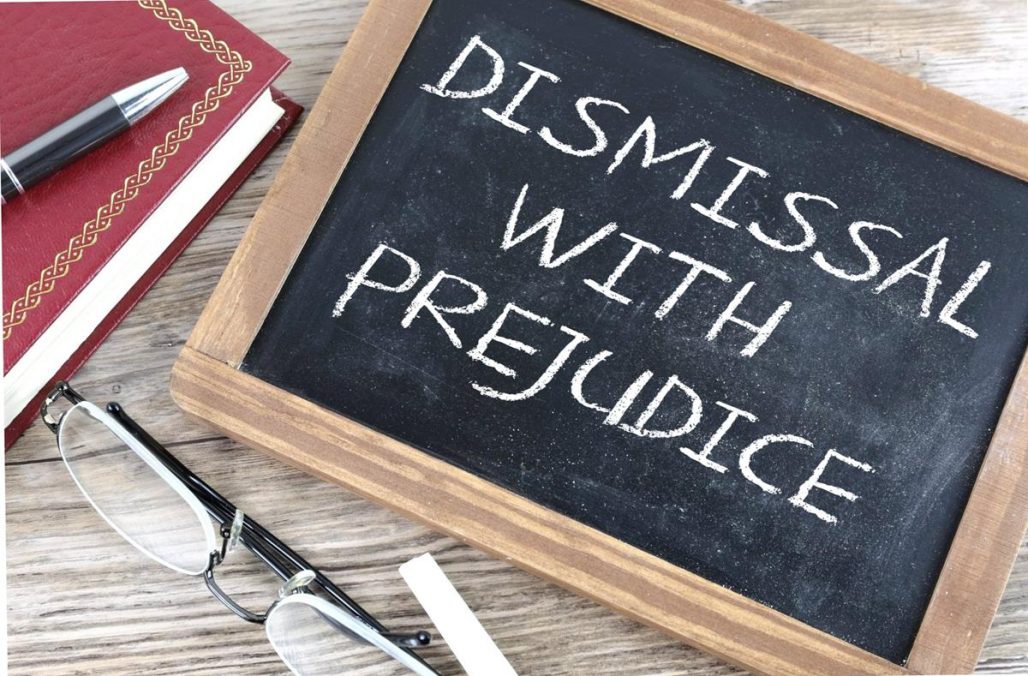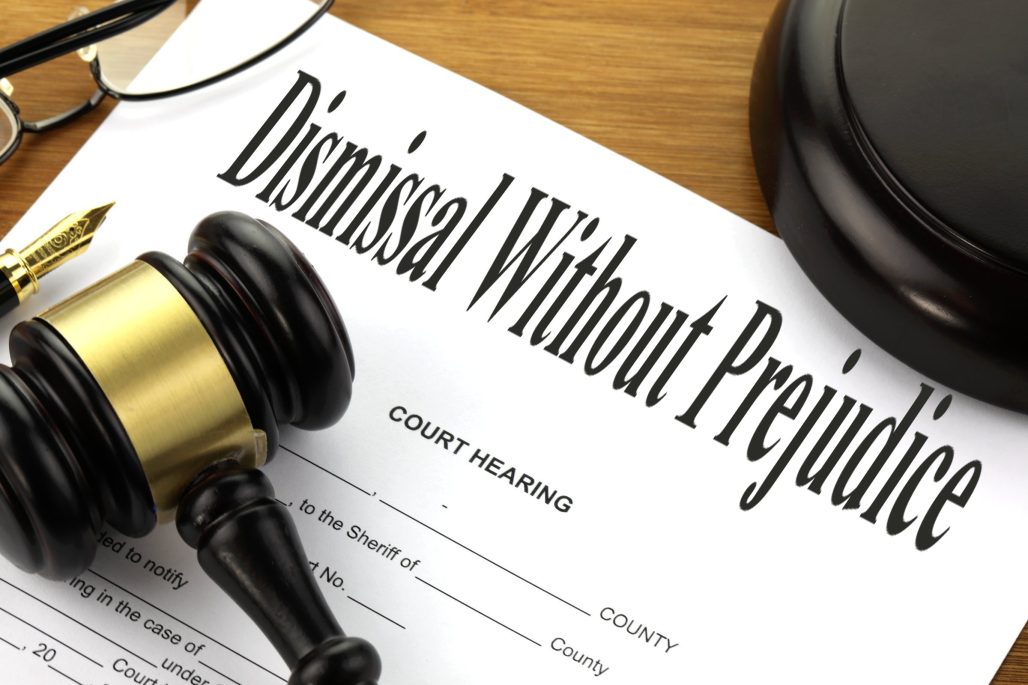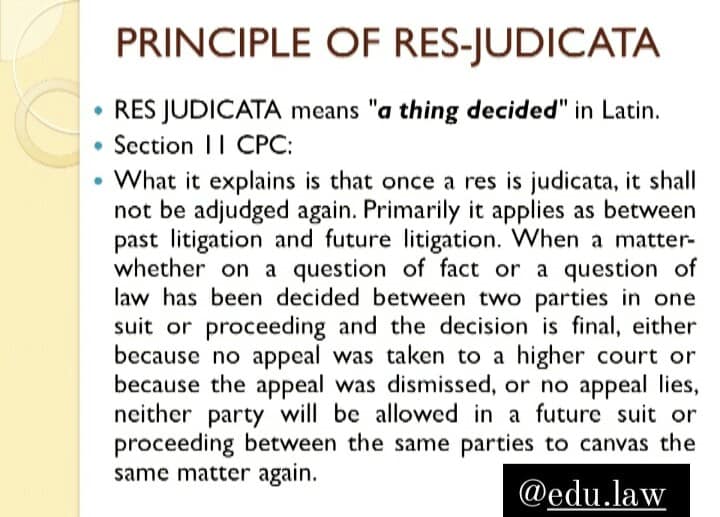Dismissed with Prejudice vs. without Prejudice: Understanding the Difference
Contents
- Dismissed with Prejudice vs. without Prejudice: Understanding the Difference
- Dismissed With Prejudice
- Dismissed Without Prejudice
- Res Judicata
- What happens after a case is dismissed without prejudice?
- Can a case be re-filed after being dismissed without prejudice?
- Key Differences – With vs. Without Prejudice
- Voluntary Dismissal
- Involuntary Dismissal
- FAQs on Case Dismissals
- What does dismissal of a case mean?
- On what grounds can a case be dismissed Texas?
- How do I dismiss a case in Texas?
- Is dismissed without prejudice good or bad?
- What does dismissed with without prejudice mean?
- What does it mean when something is without prejudice?
- Why would a plaintiff dismiss a case without prejudice?
- Are most cases dismissed with or without prejudice?
- Can you appeal a dismissal without prejudice federal court?
- Is a dismissal a final judgment?
- Can a dismissal be overturned?
- What is a notice of dismissal with prejudice in federal court?
- Why do judges say without prejudice?
- Final Word
What does it mean to dismiss a court case because of prejudice? How about voluntary versus involuntary? Knowing the difference between a case being dismissed with prejudice and one without is key to understanding how legal proceedings work.
Dismissing a case with prejudice means that the case is closed permanently; the person whose case was dismissed cannot bring it back to court. On the other hand, dismissals without prejudice are not so final. The person can still try again to pursue their cause in court.
Dismissal of a court case can be voluntary or involuntary. If someone voluntarily dismisses their case, this is usually because they have received what they wanted from the other side and no longer need to continue with legal proceedings. On the other hand, an involuntary dismissal is made by the judge and is usually the result of the other party bringing up legal issues.
| Dismissed With Prejudice | Dismissed Without Prejudice | Voluntary Dismissal | Involuntary Dismissal | |
|---|---|---|---|---|
| Definition | Dismissal of a case permanently due to fundamental flaws or issues preventing plaintiff from refiling | Dismissal allowing plaintiff to potentially refile case if issues are resolved | Plaintiff voluntarily requests dismissal of the case | Judge dismisses case due to procedural errors, lack of jurisdiction, etc. |
| Can case be refiled? | No, case dismissed permanently | Yes, plaintiff may refile if issues addressed | Plaintiff may refile, but may be limited | Depends on reason for dismissal |
| Typical reasons | Failure to state a claim, lack of jurisdiction, statutes of limitations, frivolousness | Lack of evidence, failure to prosecute, procedural errors | Settlement reached, inability to proceed, avoid ruling | Lack of jurisdiction, failure to prosecute, procedural flaws |
| Party requesting | Either plaintiff or defendant | Either plaintiff or defendant | Plaintiff only | Judge only |
| Prejudicial effect | Claim barred, case closed permanently | Dismissal without prejudice to refiling case | Varies, can limit future refiling | Varies depending on cause |
| Common law basis | Res judicata principle | N/A | N/A | N/A |
In cases where legal reasons are brought up and the case cannot move forward, the judge may either dismiss the case with or without prejudice. Typically, judges will choose to dismiss without prejudice in order for the person to have a chance to amend their arguments or evidence and attempt to try again, but there are cases where a judge may see fit to dismiss with prejudice if they believe that the issue cannot be solved and their ruling should be permanent.
Dismissed With Prejudice
When a case is dismissed with prejudice, it means that the plaintiff has legally lost their right to bring the same suit back to court or file a similar suit based on the same grounds – the decision is final. This form of dismissal is permanent and cannot be reopened – the charges are completely settled. Cases are often dismissed with prejudice if a judge finds the lawsuit to be frivolous or if the matter is resolved outside of the court’s jurisdiction.

If the judgment of the original court is appealed, however, or different charges are filed in a new case, the dismissal may be overturned. Ultimately, a dismissal with prejudice is an effective legal tool that ensures that once a dispute has been settled, it will not come up again.
Why would a plaintiff dismiss a case without prejudice?
When a plaintiff decides to dismiss their case without prejudice, it indicates that they plan to refile the claim in the future. This type of dismissal is often used when the plaintiff would suffer some form of hardship if they were to continue with the suit, such as limited resources or time constraints. Additionally, this type of dismissal can also be used as a punitive measure under Rule 37(b)(2) for parties who have acted in bad faith. By allowing a plaintiff to withdraw their suit without prejudice, the court preserves their legal right to pursue their claim at a later date.
Is dismissed without prejudice good or bad?
When a court dismisses a case “without prejudice”, it does not mean that any underlying legal issues have been resolved. It simply means that the plaintiff has been temporarily relieved from pursuing litigation in that particular court or forum. This type of dismissal allows the plaintiff to re-file charges, alter the claim, or take their case to another court – for instance if they believe a more favorable judgment may be reached at a different venue. Because “without prejudice” dismissals do not prevent plaintiffs from seeking judgment in other courts, they are typically viewed as a more favorable outcome than “with prejudice” dismissals which close the door on all future possibilities.
Dismissed Without Prejudice
When a case is dismissed with prejudice, it is permanently closed and cannot be re-filed. On the other hand, a case dismissed without prejudice can be reopened at a later date by either the plaintiff or the court. Most dismissals without prejudice are voluntary, and issued by a prosecutor or judge in order to give the plaintiff an opportunity to address any flaws or weaknesses in their claim before trying it again.

However, sometimes a dismissal without prejudice may become involuntary, such as when the statute of limitations for the case has expired. This means that even if the plaintiff attempts to re-file the case later on, they may be barred from doing so due to the passing of time. In certain cases, this involuntary dismissal may lead to the defendant being released. Ultimately, whether a case is dismissed with or without prejudice depends on its individual circumstances and the decisions of those involved in the process.
Why would a case be dismissed with prejudice?
A case dismissal with prejudice is an order issued by a court to stop proceedings in a lawsuit because of errors, often involving the defendant’s constitutional rights, that cannot be rectified. In some cases, it is also used when a defendant successfully completes a diversion program. Dismissal with prejudice bars any future litigation over the same matter and usually ends the case for good, thereby precluding any further legal action by either party.
What is an example of a case dismissed with prejudice?
An example of a dismissed case with prejudice is one in which an arrest was made without probable cause, the right to a timely trial was violated, or an illegal search was conducted. When these types of actions occur, the court will deem the case invalid and issue a dismissal with prejudice, thereby closing the door on any possible appeals.
There are several common reasons for cases to be dismissed without prejudice. Understanding these reasons can provide valuable insights into the legal implications involved.
- Lack of Sufficient Evidence: In many cases, a judge may dismiss a case without prejudice if the plaintiff fails to present enough evidence to support their claims. This could include inadequate documentation, unreliable witnesses, or insufficient proof of wrongdoing. Dismissing the case without prejudice allows the plaintiff the opportunity to gather additional evidence and refile the case in the future.
- Procedural Errors: Mistakes made during the legal process can also lead to a case being dismissed without prejudice. This might include failure to follow proper filing procedures, missed deadlines, or non-compliance with court rules. Dismissing the case without prejudice gives the plaintiff a chance to rectify these errors and proceed with the case correctly.
- Lack of Jurisdiction: If a court determines that it does not have the authority or jurisdiction to hear a particular case, it may dismiss the case without prejudice. This could occur if the case involves a matter that falls under the jurisdiction of a different court or if the court lacks the necessary legal authority over the parties involved.
- Settlement or Resolution Outside Court: Sometimes, parties involved in a legal dispute may reach a settlement or resolution outside of court. In such cases, they may request the court to dismiss the case without prejudice. This allows both parties to resolve their issues without further litigation while preserving the option to reinstate the case if the settlement is not upheld.
Res Judicata
Res judicata, more commonly referred to as claim preclusion, is the principle that a cause of action may not be relitigated once it has been judged on its merits. After a court renders its final judgment on the merits, the losing plaintiff cannot re-sue a winning defendant on the same cause of action and a winning plaintiff cannot re-sue a losing defendant in order to recover further damages. Furthermore, certain types of dismissal do not constitute adjudication on the merits and are hence not claim-preclusive. These include lack of jurisdiction or venue, failure to join a party, and voluntary dismissals.

A dismissal based on a failure to state a claim is, however, typically considered to be claim-preclusive. Additionally, claim preclusion applies to counterclaims. Compulsory counterclaims that were unasserted can sometimes still be brought in another lawsuit, whilst permissive counterclaims that were unasserted are seldom allowed. Estoppel and judicial estoppel are alternative techniques that courts use to achieve a similar effect as claim preclusion. Finally, note that claim preclusion only applies to adverse parties – co-parties such as those joined via Federal Rule 19 or 20 are exempted from this rule.
Is a dismissal with prejudice res judicata?
A dismissal with prejudice is an affirmative defense to legal action and has the same effect as a common law retraxit—barring any future action on the same subject matter. This is known as res judicata, which prohibits parties from litigating an issue already tried in court. The California Court of Appeals affirmed this doctrine in Torrey Pines Bank v. Superior Court (1989). However, it is important to note that this principle is not jurisdictional, meaning it can be overruled or waived at the discretion of the court if the proper pleading or evidence is not presented. This was confirmed by the California Supreme Court in Busick v. Workmen’s Comp. Appeals Bd. (1972).
What happens after a case is dismissed without prejudice?
When a case is dismissed without prejudice, it means that the case is closed, but it can be reopened or filed again in the future. This legal term carries important implications, and understanding what happens after a case is dismissed without prejudice is crucial.
Dismissal without prejudice allows the plaintiff to refile their case, provided they meet the necessary requirements and adhere to the applicable statutes of limitations. It is often seen as a second chance for the plaintiff to address any deficiencies in their original complaint or to gather additional evidence to strengthen their case.
A dismissal without prejudice does not necessarily imply fault or innocence on the part of either party. It simply means that the case is not proceeding at the present moment, but it could potentially be revived in the future.
After a case is dismissed without prejudice, both parties have the opportunity to evaluate their legal strategies and consider their next steps. For the plaintiff, this may involve conducting further investigations, gathering additional evidence, or seeking legal advice to strengthen their case. On the other hand, the defendant may choose to reassess their defense strategy, gather further evidence in their favor, or explore settlement options.
It is important to note that a dismissal without prejudice does not prevent the plaintiff from pursuing the case again. However, it is essential for the plaintiff to be mindful of any time limitations imposed by the statute of limitations. Failing to meet these deadlines could result in the loss of the right to refile the case.
Can a case be re-filed after being dismissed without prejudice?
If you’ve ever found yourself in a legal dispute, you may have come across the term “dismissed without prejudice.” But what does it really mean and what are the implications for your case?
When a case is dismissed without prejudice, it means that the dismissal is not final and does not prevent the plaintiff from re-filing the case in the future. Essentially, it gives the plaintiff the opportunity to correct any errors or address any issues that led to the dismissal and bring the case back to court.
When a case is dismissed without prejudice, it does allow the plaintiff the chance to re-file the case in the future. However, it’s important to consult with a legal professional to fully understand the implications and requirements specific to your jurisdiction.
This can happen for a variety of reasons. For example, if there is a procedural error or a lack of evidence, the court may dismiss the case without prejudice to allow the plaintiff to gather more information or rectify the mistake. It could also be due to a settlement negotiation, where both parties agree to dismiss the case without prejudice in order to explore a potential resolution.
A case dismissed without prejudice may potentially be refiled at a later date. This makes it a temporary dismissal rather than a permanent closing of the matter.
If refiled, the case could include:
- A different jurisdictional venue or court system
- Different defendants or respondents named
- Amended claims, facts alleged, or causes of action
To pursue the case again, it must be refiled before the governing statute of limitations expires. Otherwise, the window to litigate the claims will close.
A dismissal without prejudice could occur via:
- A prosecuting attorney or plaintiff’s request
- The court’s own order and determination
Overall, this dismissal allows for the possibility of renewing the legal action in the future if it meets procedural requirements. The case is not barred from being brought again like with prejudice dismissals.
Key Differences – With vs. Without Prejudice
Understanding the key differences between “dismissed with prejudice” and “dismissed without prejudice” is crucial. These two terms are often used to describe the outcome of a case or motion, and they carry significant implications for both the plaintiff and the defendant.
Dismissed With Prejudice
When a case is “dismissed with prejudice,” it means that the court has made a final decision on the merits of the case, and the plaintiff is barred from bringing the same claim or cause of action against the defendant in the future. This dismissal is typically the result of a substantive issue, such as the lack of evidence or a legal defect in the plaintiff’s case. It serves as a final judgment, and the case is closed.
Dismissed Without Prejudice
On the other hand, a dismissal without prejudice provides the plaintiff with an opportunity to address any procedural issues and potentially strengthen their case before refiling. While it may temporarily delay the resolution of the case, it allows the plaintiff to continue their pursuit of justice.
When a case is “dismissed without prejudice,” it means that the court is dismissing the case for reasons other than the merits of the case itself. This dismissal is often procedural or technical in nature, such as a failure to comply with certain court rules or procedures. Unlike a dismissal with prejudice, a dismissal without prejudice allows the plaintiff to refile the case or bring a similar claim against the defendant in the future. It does not serve as a final judgment, and the plaintiff has the opportunity to correct any procedural errors and pursue their claim again.
The implications of these two types of dismissals are significant. A dismissal with prejudice signifies that the plaintiff’s claim has been conclusively resolved, and they are prohibited from pursuing the same claim against the defendant again. This can be a significant blow to the plaintiff’s case and may prevent them from seeking further legal recourse.
Voluntary Dismissal
A voluntary dismissal allows a prosecutor to strategically end a case when it becomes unnecessary or when it fails to meet the required conditions for going to trial. In these scenarios, the prosecutor can choose to dismiss either with or without prejudice. If dismissed with prejudice, the case can no longer be brought back to court; this is typically done when the grounds for bringing the case have been resolved outside of court.
However, if the dismissal is without prejudice, the prosecutor may file another case, potentially one with more severe consequences, or they may be addressing a perceived weakness or error in the current case. Ultimately, voluntary dismissal serves as an effective way for prosecutors to exercise discretion in deciding whether and how to proceed with a legal case.
Involuntary Dismissal
An involuntary dismissal is the termination of a legal case without the recommendation of the prosecution. It can be done both with or without prejudice and in some cases, the defendant themselves may request the dismissal. This type of termination may take place if the defendant was not provided proper notice of the legal action or if the court deems that it is not the right jurisdiction for the case. In this event, the dismissal may typically occur without prejudice so another court may be able to take over the suit at a later time.
Reasons a judge may issue an involuntary dismissal include:
- Legal flaws or inadequacies in the plaintiff’s complaint
- Lack of jurisdiction over the case itself
- No jurisdiction over the defendant
- The defendant was not properly served
- Improper venue for the dispute
- Other procedural or substantive issues
If the dismissal is without prejudice, the prosecutor or plaintiff may be able to refile the case after addressing the deficiencies cited. However, they must still comply with applicable statutes of limitation. An involuntary dismissal could prevent refiling if too close to the limitation expiring.
Overall, involuntary dismissals are ordered solely by the judge rather than requested by the parties. The problems causing the dismissal may or may not be curable to allow renewed litigation. Careful case preparation is important to avoid procedural pitfalls leading to termination.
If a case is dismissed without prejudice, it allows room for any errors in the presented case to be addressed before being brought back to court. However, a dismissal with prejudice means that the case cannot be brought back and has been permanently closed, often due to repeated chances to fix the case having been given but no improvement is seen. In either scenario, the judge is acting based on their judgment as to the best course of action and it is important to understand why a decision like this may be made.
FAQs on Case Dismissals
What does dismissal of a case mean?
Dismissal of a case means that the court has decided to end the legal proceedings and did not reach a decision on the merits of the case. The court’s decision in this instance is typically based on procedural grounds or lack of jurisdiction.
On what grounds can a case be dismissed Texas?
In Texas, a case may be dismissed on various grounds, such as a plaintiff’s failure to prosecute or inadequate service of process. Additionally, a defendant may be able to prove that the case was brought in the wrong venue or that it is barred by a statute of limitations.
How do I dismiss a case in Texas?
Dismissing a case in Texas requires filing a motion with the court. The specific motion required depends on the ground for dismissal, but typically it will require a Motion to Dismiss for Insufficient Service of Process or a Motion to Dismiss for Lack of Prosecution.
Is dismissed without prejudice good or bad?
Whether dismissed without prejudice is good or bad depends on the individual circumstances of each case. Generally speaking, it is viewed as favorable since it provides an opportunity for the case to be re-filed if necessary.
What does dismissed with without prejudice mean?
When a case is dismissed without prejudice, it means the court has declined to make any judgment about the merits of the claims presented and has allowed the parties involved to pursue future legal action if they so choose. It does not affect either party’s rights to bring a new claim in the future.
What does it mean when something is without prejudice?
The phrase “without prejudice” is used to refer to legal actions taken without affecting either party’s rights. This term is commonly used when attempting to settle a dispute outside of court or in situations where one party concedes that a particular legal position cannot be proven.
Why would a plaintiff dismiss a case without prejudice?
A plaintiff can dismiss a case without prejudice for several reasons, including not having sufficient evidence to support their claim or failing to file certain documents on time. In these cases, they may decide that it is best to simply withdraw their original complaint and start the process all over again.
Are most cases dismissed with or without prejudice?
Most cases are usually dismissed with prejudice, meaning that the ruling affects both parties and prohibits them from refiling the same complaint in court. However, cases may also be dismissed without prejudice, allowing the parties involved to start fresh if they so desire.
Can you appeal a dismissal without prejudice federal court?
No, you cannot typically appeal a dismissal without prejudice in federal court since such decisions are made without making any rulings on the merits of the case.
Is a dismissal a final judgment?
No, a dismissal is not considered a final judgment since no decision has been made on the merits of the case. A dismissal simply denotes that the court has chosen to end legal proceedings due to lack of evidence or other procedural issues.
Can a dismissal be overturned?
In some cases, yes, a dismissal may be overturned because of errors or mistakes committed during trial. It is important to discuss your options with an experienced attorney if you believe you have grounds for appealing a dismissal.
What is a notice of dismissal with prejudice in federal court?
A notice of dismissal with prejudice is an official document that informs both parties in a federal court case that all claims have been dismissed and cannot be pursued further. This type of dismissal results in an adverse judgment being reached against one or both parties, preventing the case from being reopened and re-litigated.
Why do judges say without prejudice?
Judges use the phrase “without prejudice” when they are dismissing cases without making any rulings on the merits of the claims presented. This language serves as an indication that the parties involved still have the right to pursue future legal action if necessary.
Final Word
While being dismissed without prejudice may feel like a setback for some, it offers an opportunity for further assessment, gathering additional evidence, or adjusting legal strategies. It is important to remember that dismissal without prejudice does not necessarily mean the end of the legal battle; instead, it provides an avenue for refinement and improvement in future attempts to seek justice.
We hope that this blog post has provided you with a clear understanding of the legal concept of “dismissed without prejudice.” Remember, being dismissed without prejudice means that your case can be refiled at a later date, so it’s important to consult with an attorney to determine the best course of action for your specific situation. By having a thorough understanding of this legal concept, you can navigate the legal system more effectively and make informed decisions.




